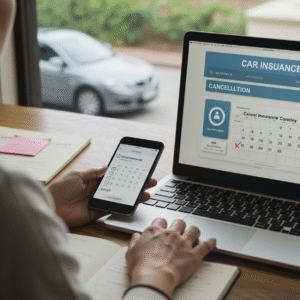This article may contain references to products or services from one or more of our advertisers or partners. We may receive compensation when you click on links to those products or services. Nonetheless, our opinions are our own.
The information presented in this article is accurate to the best of our knowledge at the time of publication. However, information is subject to change, and no guarantees are made about the continued accuracy or completeness of this content after its publication date.
- Introduction
- What Is Minimalist Budgeting
- Minimalist Budgeting vs Traditional Budgeting
- Why Minimalist Budgeting Works
- Benefits of Minimalist Budgeting
- Stress Reduction Through Simplicity
- Getting Started With Minimalist Budgeting
- Guide to Minimalist Budgeting
- How to Identify Priorities
- Sample Expense List
- Summary of Minimalist Budgeting Benefits
- Frequently Asked Questions
- Recommended Reads
Introduction
Minimalist budgeting helps simplify your financial life while supporting meaningful goals. It gives you the power to focus on needs and values without getting overwhelmed by every spending detail. Instead of tracking dozens of budget categories, you prioritize what truly matters. This strategy encourages intentional decisions and helps reduce financial stress. Whether you want to cut clutter, save money, or regain control of your spending, minimalist budgeting offers a simple, clear path. It’s not about sacrifice; it’s about purpose and clarity.
What Is Minimalist Budgeting
Minimalist budgeting is a financial method focused on clarity and purpose. It eliminates excess budget categories and spending habits that don’t align with your values. Instead of micromanaging every penny, you direct money toward a few clear priorities like savings, bills, or debt. It’s ideal for those who want a streamlined approach without losing sight of their financial goals. This strategy favors quality over quantity and aims to build a lasting system that is easy to maintain. At its core, it’s about doing more with less and feeling better about your money.
Spend With Purpose and Cut the Clutter
Spend on things that really matter to you, and try to cut out costs you do not need. When you focus your money on a few priorities, it’s easier to make progress without feeling overwhelmed. You don’t have to eliminate everything, just the noise. Spending intentionally allows you to make decisions that support your lifestyle and reduce financial stress. Each purchase should align with your values and long-term goals. This way, you’re more satisfied with what you choose to keep and spend on.
Set Clear Money Goals
Set goals that reflect your values and future needs. Whether you’re saving for a home, clearing debt, or building a rainy day fund, goals give direction. They provide a framework for your spending decisions. Start by defining short-term goals, like paying off a small credit card, and long-term goals, such as retirement planning. When your budget follows your goals, every dollar gets assigned with purpose. This helps remove distractions and builds confidence in your financial journey.
Aim for a Simple Lifestyle
A simple lifestyle doesn’t mean living with nothing; it means living with what’s enough. By reducing unnecessary commitments and purchases, you gain clarity and control. This approach limits decision fatigue and builds routines around financial stability. A minimalist life reduces your exposure to debt and increases your ability to respond to unexpected expenses. With fewer bills and fewer choices to manage, life becomes easier and more peaceful. It allows you to spend more time doing what you love with the resources you already have.
Use Budgeting Tools
Using the right tools can make minimalist budgeting easier and more effective. Free apps like Mint, Goodbudget, or YNAB let you set goals and track progress automatically. You can also use simple spreadsheets or pen-and-paper if you prefer a hands-on approach. Tools like the 50/30/20 rule or envelope systems provide structure without overwhelming detail. Automation helps reduce the mental load by ensuring bills and savings happen on time. Choose tools that support your simplicity, not ones that complicate it.
Simplify Financial Accounts
Too many bank or investment accounts can create confusion. Streamline your finances by consolidating where possible. Use one checking account for bills and one savings account for goals or emergencies. Keep your credit cards to a minimum, just one or two that align with your budget plan. This reduces the risk of overdraft, missed payments, or fees. When your money is organized, it becomes easier to track, manage, and grow. Simplified accounts are the backbone of a minimalist budget.
Review Spending Regularly
Schedule a regular check-in weekly or monthly to review your budget. This helps you stay aligned with your financial goals and catch problems early. Look at where your money actually went compared to your plan. Adjust as needed. If something is no longer serving your needs, remove it. These reviews don’t have to take long; even 15 minutes is enough to see where things stand. Staying consistent builds awareness and keeps your minimalist system running smoothly.
Minimalist Budgeting vs Traditional Budgeting
Traditional budgeting often involves dividing income into multiple categories, each with detailed tracking. While effective for some, this can overwhelm or discourage others. Minimalist budgeting reduces that complexity by narrowing focus to a few core areas. Rather than planning for 20 expense groups, you might work with only five. This makes it easier to adapt your budget over time. It also supports long-term habits instead of temporary fixes. For those who prefer flexibility, this method creates less friction and more consistency.
Why Minimalist Budgeting Works
Minimalist budgeting works because it removes distractions and emphasizes intention. It cuts out emotional and impulse spending by clarifying what matters. This method encourages consistency, reduces decision fatigue, and strengthens your emotional connection to money. Because the process is simple, you’re more likely to stick with it over time. It also fosters mindfulness; each transaction becomes a reflection of your values. Ultimately, the simplicity builds confidence and peace of mind.
Benefits of Minimalist Budgeting
- Build an emergency fund to handle unexpected financial events.
- Reduce or eliminate credit card debt by cutting wasteful spending.
- Improve cash flow by having fewer bills and accounts to manage.
- Create more opportunities to invest by freeing up extra income.
These benefits result in better financial control, reduced stress, and a lifestyle that aligns with your long-term goals. You get to enjoy financial wins more often and avoid decision fatigue caused by a cluttered system.
Voted "Best Overall Budgeting App" by Forbes and WSJ
Monarch Money helps you budget, track spending, set goals, and plan your financial future—all in one app.
Get 50% OFF your first year with code MONARCHVIP
Stress Reduction Through Simplicity
Financial stress often stems from too many decisions, obligations, or scattered tools. Minimalist budgeting reduces this by encouraging focus and balance. When you remove distractions like unused subscriptions or extra accounts, you reduce overwhelm. You also gain more energy to focus on decisions that matter. With fewer financial moving parts, it’s easier to breathe, plan, and stay consistent. Over time, you’ll notice more confidence, better sleep, and an improved relationship with your money.
Getting Started With Minimalist Budgeting
Set Clear Goals
Start by writing down three to five financial goals. Keep them short and focused. Examples include saving $1,000 for emergencies, paying off one credit card, or reducing food delivery to $50 per month. These goals will serve as the foundation of your budget. When making a purchase, ask, “Does this support my goal?”
Use Basic Tools
- High-yield savings accounts to grow your money efficiently
- Budgeting apps like YNAB, Mint, or EveryDollar
- Spreadsheets for manual budget planning and tracking
- Journals or notepads to jot down monthly targets and reviews
These tools make it easier to stay focused without creating extra work. Choose what fits your personality and stick with it long enough to see progress.
Shifting Your Mindset
Minimalist budgeting starts with a shift in how you think about money. Instead of asking, “Can I afford this?” ask, “Does this serve my goal?” This mindset prioritizes fulfillment over temporary wants. It also builds emotional resilience and reduces guilt when saying no to spending. Over time, your decision-making becomes sharper, faster, and less draining.
Guide to Minimalist Budgeting
Step 1: Track Income and Expenses
Begin with a snapshot of your money. Record all sources of income and where your money goes. You can use statements from your bank, budgeting apps, or a notebook. Identify recurring expenses, subscriptions, and impulse buys. This step helps reveal habits that need to change.
Step 2: Eliminate Unnecessary Expenses
Cancel any unused streaming services, memberships, or apps. Reevaluate spending on food, online shopping, and transportation. If something doesn’t bring long-term value or joy, cut it. Redirect savings toward financial goals such as emergency savings or debt repayment.
Step 3: Choose a Simple Budgeting Framework
- 50% needs (housing, utilities, groceries)
- 30% want dining out and entertainment
- 20% savings and debt repayment
This structure is flexible and helps you maintain balance without the need for complicated categories. Adjust the percentages slightly to fit your lifestyle.
Step 4: Automate and Simplify
Set up automatic payments for bills and automatic transfers to your savings. Use one bank for simplicity. Group similar expenses together. Less time spent managing accounts means more time enjoying life. Automation also helps avoid late fees and missed goals.
How to Identify Priorities
Your budget should reflect what’s truly important. This might include family support, health, education, or freedom from debt. Make a list of your top values and compare them to your spending. If your money isn’t aligned, adjust. Spend on what matters and drop the rest. This clarity removes guilt and improves long-term satisfaction.
Sample Expense List
| Expense Category | Monthly Payment ($) |
|---|---|
| Rent/Mortgage | $1,200 |
| Groceries | $400 |
| Utilities | $250 |
| Transportation | $300 |
| Entertainment | $150 |
Review this list monthly and adjust based on lifestyle, income changes, or goal shifts. Keep it short, simple, and focused on needs.
Summary of Minimalist Budgeting Benefits
Minimalist budgeting provides a practical way to regain control of your finances. It simplifies decision-making, reduces stress, and strengthens your ability to save. You gain confidence, clarity, and peace of mind through consistent habits. It works well for individuals and families looking to cut through financial noise. With fewer distractions, you’re better equipped to pursue what matters most. This approach supports a long-term lifestyle of purpose and freedom.
Frequently Asked Questions
What’s the difference between minimalist and traditional budgeting?
Traditional budgeting involves tracking every expense across many categories. Minimalist budgeting narrows your focus to a few priorities, such as bills, savings, and goals. It’s easier to maintain and better suited for those overwhelmed by complexity. The core difference lies in simplicity and alignment with personal values.
How much can I save with minimalist budgeting?
The amount varies, but many people report saving 20% to 50% more than before. By cutting waste and reducing emotional spending, you free up more income. These savings can be used for emergency funds, investments, or paying off debt faster.
Is minimalist budgeting good for families?
Yes. Families benefit from clearer communication and fewer arguments over money. Everyone works toward shared goals, and kids can learn financial responsibility early. With fewer expenses to manage, parents spend less time budgeting and more time enjoying life together.
How do I stay motivated?
Keep your goals visible; use a whiteboard, sticky notes, or apps. Celebrate small wins, like paying off a small bill or saving $100. Join online communities or support groups to share progress. Always remind yourself of your “why, whether it’s freedom, peace of mind, or something personal.

Reviewed and edited by Albert Fang.
See a typo or want to suggest an edit/revision to the content? Use the contact us form to provide feedback.
At FangWallet, we value editorial integrity and open collaboration in curating quality content for readers to enjoy. Much appreciated for the assist.
Did you like our article and find it insightful? We encourage sharing the article link with family and friends to benefit as well - better yet, sharing on social media. Thank you for the support! 🍉
Article Title: Minimalist Budgeting: How to Simplify Your Finances and Save More Money
https://fangwallet.com/2025/07/29/minimalist-budgeting-how-to-simplify-your-finances-and-save-more-money/The FangWallet Promise
FangWallet is an editorially independent resource - founded on breaking down challenging financial concepts for anyone to understand since 2014. While we adhere to editorial integrity, note that this post may contain references to products from our partners.
The FangWallet promise is always to have your best interest in mind and be transparent and honest about the financial picture.
Become an Insider

Subscribe to get a free daily budget planner printable to help get your money on track!
Make passive money the right way. No spam.
Editorial Disclaimer: The editorial content on this page is not provided by any of the companies mentioned. The opinions expressed here are the author's alone.
The content of this website is for informational purposes only and does not represent investment advice, or an offer or solicitation to buy or sell any security, investment, or product. Investors are encouraged to do their own due diligence, and, if necessary, consult professional advising before making any investment decisions. Investing involves a high degree of risk, and financial losses may occur including the potential loss of principal.
Source Citation References:
+ Inspo
There are no additional citations or references to note for this article at this time.












































